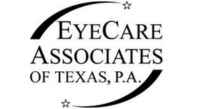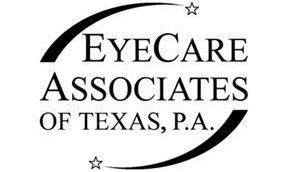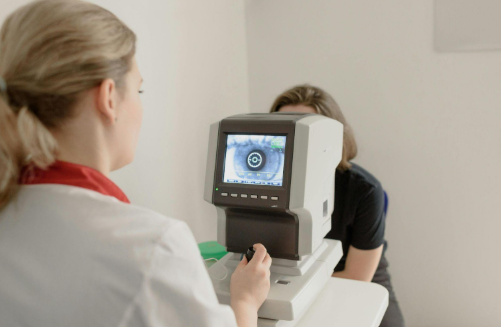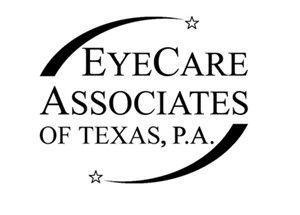Article
Essential Tips for Maintaining Clear Vision and Healthy Eyes
Our eyes are the windows to the world, offering a vital connection to everything around us. Maintaining good vision is crucial for daily activities, safety, and well-being. While some vision changes are inevitable with age, adopting healthy habits can significantly protect your eyesight and promote long-term ocular health.
Keep reading to explore essential tips for maintaining clear vision and healthy eyes, focusing on lifestyle practices and professional guidance.
Schedule Regular Eye Exams
The foundation of good eye care lies in regular eye exams. These comprehensive checkups, conducted by an ophthalmologist or optometrist, are crucial for:
- Early Detection and Diagnosis: Regular checkups can detect eye diseases and conditions like glaucoma, cataracts, and macular degeneration in their early stages. Early detection allows prompt intervention and management, significantly improving treatment outcomes and minimizing potential vision loss.
- Monitoring Existing Conditions: If you already wear glasses or have a diagnosed eye condition, regular checkups allow your eye doctor to monitor any changes in your vision and adjust treatment plans as needed.
- Maintaining Optimal Vision: Even if you haven't experienced any noticeable vision problems, regular eye exams are necessary to assess your current vision status and determine if corrective lenses are required.
The frequency of eye exams can vary depending on age, overall health, and risk factors for eye diseases. Adults with a low risk of eye problems generally require an exam every two years, while individuals with a higher risk or existing conditions may need more frequent evaluations. Always consult your eye doctor to determine the optimal schedule for your needs.
Practice Healthy Lifestyle Habits
Nourishing your body with a balanced and nutrient-rich diet is vital to maintaining good eye health. Specific vitamins, minerals, and antioxidants support healthy vision and protect against age-related eye diseases.
Here are some nutrients worth focusing on:
- Lutein and Zeaxanthin: Found in leafy green vegetables like spinach, kale, and collard greens, these antioxidants protect the macula, a vital part of the eye responsible for central vision.
- Omega-3 Fatty Acids: In fatty fish like salmon, tuna, and sardines, omega-3s promote healthy retinal function and may help reduce the risk of dry eyes and macular degeneration.
- Vitamin A: Carrots, sweet potatoes, and orange fruits contain vitamin A, which is essential for night vision and maintaining a healthy cornea.
- Vitamin C: A powerful antioxidant, vitamin C helps protect the eyes from oxidative damage linked to age-related eye conditions. Fruits like citrus, berries, and bell peppers are excellent sources of vitamin C.
- Zinc: This mineral plays a role in maintaining healthy vision and may contribute to night vision. Various foods contain zinc, including lean meat, poultry, seafood, whole grains, and legumes.
Protect Your Eyes from UV Radiation
Sunlight, while essential for life, also emits harmful ultraviolet (UV) rays that can damage the eyes. Consistent exposure to UV rays increases the risk of developing cataracts, macular degeneration, and other eye problems.
To protect your eyes from the sun's harmful rays, incorporate the following habits:
- Wear Sunglasses: Choose sunglasses that block UVA and UVB rays with a minimum UV protection factor (UPF) of 50. Wraparound styles offer additional protection by blocking UV rays from entering from the sides.
- Wear a Hat: A wide-brimmed hat provides shade and shields your eyes from direct sunlight, especially during peak sun hours (10 am to 4 pm).
- Seek Shade: When outdoors, seek shade whenever possible, especially during peak sunlight intensity hours.
Give Your Eyes a Break
The digital age has brought us immense convenience, but it has also presented new challenges for our eyes. Spending extended periods staring at digital screens, whether computers, smartphones, or tablets, can lead to digital eye strain.
The symptoms of digital eye strain include:
- Blurred vision
- Dry eyes
- Eye fatigue
- Headaches
- Neck and shoulder pain
To combat digital eye strain, practice the
20-20-20 rule: every 20 minutes, take a 20-second break and look at an object 20 feet away. This allows your eyes to refocus and relax, reducing strain and discomfort. Additionally, adjust the brightness and contrast of your screens to a comfortable level and ensure proper lighting to minimize eye fatigue.
Invest in Quality Contact Lenses
Let's explore minimizing the risk of complications while using contact lenses:
- Purchase contact lenses from reputable sources, like eye care professionals or licensed retailers.
- Avoid unauthorized sellers or online platforms that don't require a prescription to minimize the risk of counterfeit or improperly manufactured lenses.
- Consider material, fit, and breathability when selecting contact lenses.
- Choose lenses made from high-quality materials that allow oxygen to reach the cornea for eye comfort and health.
- Ensure the lenses fit correctly and comfortably to prevent discomfort, irritation, and potential corneal damage.
- Consult your eye care professional to select the most suitable lenses based on your prescription, lifestyle, and eye health needs.
- Follow the proper hygiene and care instructions provided by your eye care professional to ensure the safe and effective use of contact lenses.
Stay Mindful of Eye Safety
Whether at work or home, certain activities pose risks to eye safety.
Protect your eyes by doing the following:
- Wearing appropriate eye protection, such as safety glasses or goggles, when engaging in woodworking, gardening, or sports activities.
- Keeping household chemicals and hazardous materials away from children's reach.
- Following safety protocols in work environments that involve potential eye hazards.
Be Aware of Family Eye History
Certain eye conditions, such as glaucoma, cataracts, and macular degeneration, may have a genetic component. Know your family's eye health history and inform your eye care professional during exams. Early detection and intervention can help manage and prevent hereditary eye conditions.
Prioritize Quality Sleep
Like the rest of your body, your eyes also need adequate sleep to function correctly. When you sleep, your eyes have a chance to rest and repair themselves. Aim for seven to eight hours of sleep every night to ensure your eyes are well-rested and function optimally.
Manage Chronic Health Conditions
Chronic health conditions like diabetes and hypertension can impact eye health and vision. Manage these conditions through proper medical care, medication adherence, and lifestyle modifications. Regular monitoring and coordination with healthcare providers can help prevent or mitigate associated eye complications.
Final Thoughts
Taking care of your eyes is an investment in your future and a commitment to seeing the world in all its beauty for years to come. By incorporating these essential tips into your daily routine, you can ensure your eyes receive the care they deserve. Early detection and prevention are vital to maintaining good eye health and clear vision. If you experience any changes in your vision or persistent eye discomfort or suspect you might have an eye condition, consult your eye doctor promptly for a thorough evaluation and appropriate treatment.
Experience the difference in comprehensive eye care with
Eyecare Associates of Texas, P.A. Whether you need routine eye care, treatment for eye conditions, or guidance on maintaining healthy eyes,
we're here to serve you with personalized attention and expertise.
Schedule your eye examination today to ensure optimal vision and detect potential issues early on.
share this
Related Articles
Related Articles





